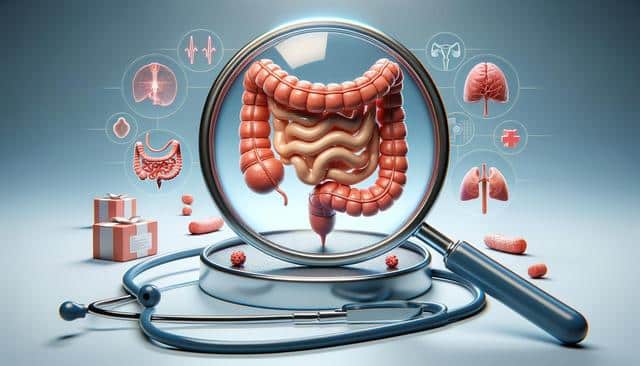
Recognizing the Signs and Symptoms of Colon Cancer
Understanding Early Digestive Changes
One of the earliest signs of colon cancer can be subtle changes in bowel habits. These changes can come on gradually and may often be mistaken for routine digestive issues. However, if they persist, it’s important to take note. People may experience more frequent bowel movements, constipation, or a feeling that the bowel doesn’t completely empty. Diarrhea that lasts more than a few days or stools that appear narrower than usual can also be indicators of a potential problem.
Some common changes in digestion to be aware of include:
- Persistent constipation or diarrhea
- Changes in stool shape or consistency, especially narrow stools
- Feeling the urge to have a bowel movement even after going
- A sense of incomplete emptying after using the bathroom
These symptoms can be caused by many different conditions, but if they don’t improve with dietary changes or over-the-counter remedies, this could signal something more serious. Keeping track of these issues and discussing them with a healthcare provider is essential for early detection.
Blood in Stool and What It May Indicate
One of the more noticeable signs of colon cancer is the presence of blood in the stool. This can appear as bright red streaks or darker, tar-like stool, depending on where the bleeding is occurring in the colon. While bleeding may sometimes be caused by hemorrhoids or small tears in the anus, ongoing or unexplained bleeding should never be ignored.
Potential signs of bleeding related to colon cancer include:
- Bright red blood on toilet paper or in the toilet bowl
- Stools that appear dark or black
- Unexplained anemia or low iron levels
Blood loss over time can lead to anemia, a condition where the body lacks enough healthy red blood cells to carry oxygen. Anemia related to colon cancer may cause fatigue, shortness of breath, and paleness. It’s crucial to seek medical advice if these symptoms occur alongside changes in bowel habits.
Sudden Weight Loss and Persistent Fatigue
Unexpected weight loss and ongoing tiredness can be alarming signs that something in the body isn’t working as it should. Colon cancer can cause these symptoms as the disease progresses. As the tumor grows, it may interfere with the body’s ability to absorb nutrients, resulting in weight loss. Additionally, internal bleeding can lead to chronic fatigue due to low iron levels and reduced oxygen delivery throughout the body.
Be mindful of the following warning signs:
- Unintentional weight loss without changes in diet or exercise
- Weakness or fatigue that doesn’t improve with rest
- Loss of appetite or feeling full quickly
These symptoms may not be specific to colon cancer, but when they occur alongside digestive changes or blood in the stool, they should prompt a visit to a healthcare provider. Early detection can improve outcomes significantly, so it’s important not to overlook these signs.
Abdominal Discomfort and Pain
Abdominal pain is another symptom that may point toward colon cancer, particularly if it is persistent or progressively worsening. The discomfort may be caused by a growing tumor that is pressing on surrounding organs or blocking the intestines. This pain can vary in intensity and location, sometimes coming on as cramping, bloating, or a general feeling of fullness.
Types of abdominal discomfort to notice include:
- Cramping or pain that doesn’t go away
- Bloating or swelling in the abdomen
- Feeling full even after a light meal
- Discomfort that is worse after eating
These symptoms might be more pronounced if the tumor is located in the lower part of the colon. While abdominal issues are common and often linked to less serious conditions, persistent or unusual pain should always be evaluated, especially when combined with other symptoms like weight loss or changes in bowel habits.
When to Seek Medical Testing
Recognizing the signs and symptoms of colon cancer is the first step, but knowing when to seek medical advice is equally important. Many people delay seeing a doctor because they believe their symptoms are minor or will go away on their own. However, early diagnosis greatly improves the chances of effective treatment and long-term health. If any of the symptoms mentioned persist for more than a few weeks, or if multiple symptoms occur together, it is essential to speak with a healthcare provider.
Situations where testing should be considered include:
- Ongoing changes in bowel habits lasting more than three weeks
- Visible blood in the stool or dark, tarry stools
- Unexplained fatigue, weight loss, or anemia
- A family history of colon cancer or other risk factors
Screening tests, such as colonoscopy or stool-based tests, can help detect colon cancer early or even before it develops. Individuals over age 45 or those with a family history may need to begin screening earlier. Open conversations with healthcare professionals about risk and symptoms are key to making informed decisions about testing and preventive care.
Conclusion: Awareness Leads to Action
Colon cancer is one of the most treatable forms of cancer when caught early, but it often goes unnoticed in its initial stages. Recognizing the signs—such as changes in bowel habits, blood in the stool, fatigue, and unexplained weight loss—can lead to timely medical evaluation and intervention. Understanding your body and being proactive about symptoms not only supports your health but may also save lives. If you or someone you know is experiencing these signs, don’t hesitate to seek medical advice. Regular screenings and early detection are powerful tools in the fight against colon cancer.


